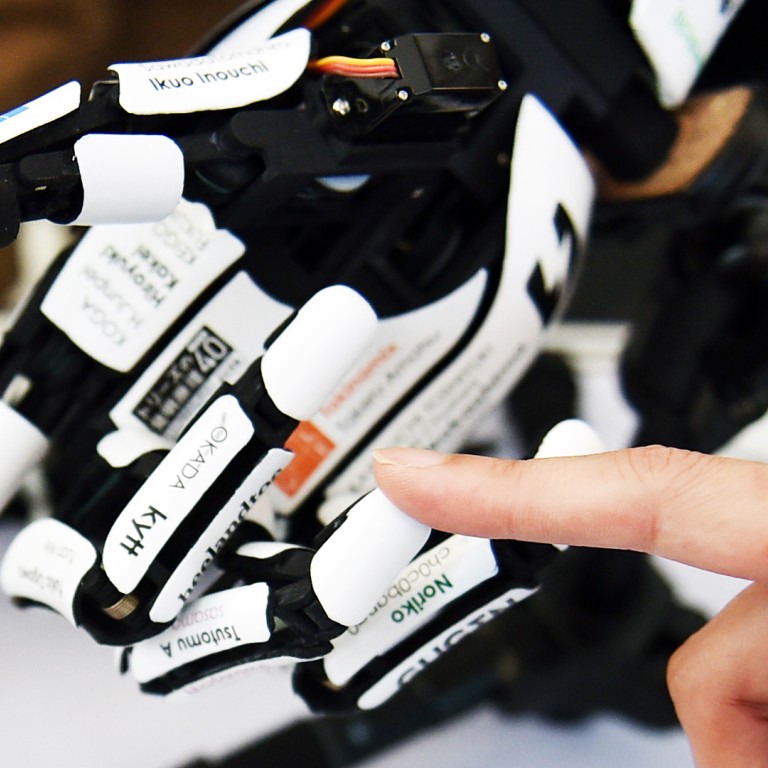
Internet censorship, rising living costs stand in way of Shenzhen's 'maker hub' ambitions
Shenzhen aims to become a global hub for innovative products by 2017 despite China’s rising costs and internet restrictions, which still deter some foreign companies from setting up there.
The city’s Science Technology and Innovation Committee unveiled its 2015-2017 action plan to attract future hardware projects from abroad during a five-day trade fair in this migrant city in Guangdong province, which wrapped up on Monday.
Shenzhen Maker Week drew thousands of manufacturers and 100,000 visitors, making it the biggest fair of its kind to date on the Chinese mainland.
The city aims to persuade 100,000 makers to plant roots there by 2017, it said.
During the event, the committee said it will establish over 200 “makerspaces,” or idea-sharing workshops that provide devices such as 3D printers, laser cutters and soldering irons, in the city over the next few years.
Shenzhen already has about 40, according to Lu Jian, the committee’s head.
Collectively, they form a decentralised global community of do-it-yourself hardware designers, tinkerers, hobbyists, inventors, entrepreneurs, and other individuals.
To help achieve its goal, the local government will offer them total subsidies of 200 million yuan (US$32.3 million).
New makerspaces will be able to apply for financial help of up to 5 million yuan each, whether foreign or local, Lu said. The government will also sponsor equipment upgrades and servicing.
The city will offer permanent residency to the top performers, and manufacturers will be able to enjoy some free services there, he added.
The move comes after Chinese Premier Li Keqiang went on an inspection tour of the city recently to spur innovation and help counter the economic slowdown that China is facing after three decades of unchecked growth.
Li has also been promoting his “internet first” policy this year.
The workshops are designed to drive innovation based on their commitment to knowledge sharing, open source design and code, cross disciplinary collaboration, transparency, and building on existing technologies, the committee said.
But while some exhibitors and attendees praised the city’s manufacturing prowess, others felt hamstrung by the level of internet connectivity.
“Shenzhen is a heaven for those people to build a tech company on physical products,” said John Morris, a computer engineer from Austin, Texas who owns a workshop focusing on automation.
“They can find everything they need here: cheap hardware plants, generous investors and the huge mainland market,” he said.
“But [it] has a long way to go to build a good maker culture, a culture of sharing ideas, not just making money.” he said.
Jie Qi, a research assistant with the MIT Media Lab, a research laboratory at the Massachusetts Institute of Technology, found it “surprisingly difficult” to access the internet in the city.
“It’s really hard here for makers to get online,” she said. “It’s not just because some of the websites are blocked, but the signal isn’t stable in a lot of places.”
While she said this could hamstring development, Jie also praised the city’s supply chains, factory clusters and overall convenience.
“It also seems like there are many more options and choices in Shenzhen than in the United States. This could attract companies that are growing to the city, and I think it will become even easier to get things made here in the future,” she added.
Shenzhen has a reputation for offering a diverse range of suppliers and service providers, thus easing the burden for hardware start-ups. While it may take weeks to get a new circuit board made in the US, this can often be done in a few days in Shenzhen.
If the central government were to unblock banned sites like Google, Facebook and Wikipedia, idea-sharing and innovation in fields such as technology and the sciences would accelerate, Morris said.
“The limits on the internet are really a big challenge for Chinese manufacturers,” said Lyn Jeffery, co-director of the Shenzhen Open Innovation Lab.
But these problems are shrinking as China and its companies build their own platforms for communicating and the Chinese become better educated, added Jeffery, who also serves as director of the Institute for America’s Future, a think tank.
“China actually has a big enough ecosystem,” she said. “So they can start creating their own ways of learning.”
Shenzhen’s soaring living costs and rising wages are other would-be deterrents for foreign manufacturers, said Thailand’s Nati Sang, who owns a makerspace in the northern Thai city of Chiang Mai.
“Makers need to be happy and creative. That’s why I set up my makerspace in Chiang Mai. But I think Shenzhen is too expensive for college kids or skilled workers who want to make products,” he said.
The average yearly income of Shenzhen residents last year was 41,000 yuan.

